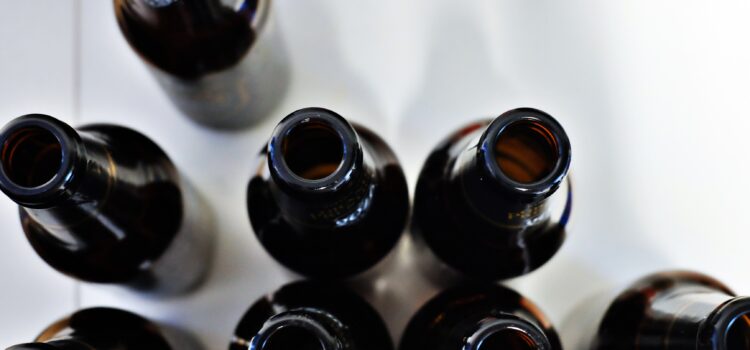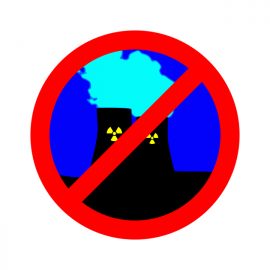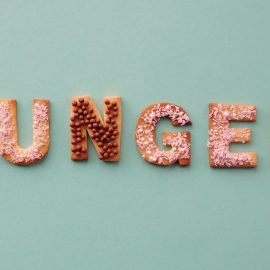
Why do people become alcoholics? Is there an “alcoholism gene”? Are certain people more vulnerable to addiction?
In This Naked Mind, Annie Grace contends that alcoholism results from an ignorance of the truth about alcohol. She identifies common misconceptions about drinking, and she explains why everyone’s at risk for addiction and how a denial of that fact leads to alcohol abuse.
Read more to understand Grace’s enlightening argument.
Society Misrepresents Alcohol & Addiction
Why do people become alcoholics? Grace points to people’s unawareness of the dangers of drinking and the risk of addiction. In other words, people become addicted to alcohol because they don’t know they should stay away from it. Grace blames society’s misrepresentation of alcohol addiction for this. First, society conditions us to believe that alcohol is less dangerous or addictive than it really is. Second, it makes us believe that addiction happens only to people who can’t control their drinking and that we who do have control are safe from it. Let’s look at these two misconceptions in more detail.
(Shortform note: Research supports Grace’s argument that people largely underestimate the dangers of alcohol and the risk of addiction. According to one study, although 71% of US adults believe alcohol affects drinkers negatively, most think that the effects of alcohol are only somewhat negative rather than very negative. This way of thinking isn’t limited to America, either. Alcohol abuse is a global problem, affecting around 107 million people.)
The Dangerous Truth About Alcohol
First, Grace points out that society often differentiates alcohol from other drugs, leading us to believe that it’s less harmful than substances like heroin or cocaine. However, Grace argues that this is dangerously misleading: Contrary to what society would have us believe, alcohol is a highly addictive drug, and it affects everyone’s mind in the same way.
(Shortform note: If alcohol’s so dangerous and addictive, why did humans start drinking it? Some evolutionary scientists cite the drunken monkey hypothesis to explain why humans developed a unique taste for alcohol. According to this hypothesis, our early ancestors lived in forests and ate large quantities of fruits, which naturally contain alcohol. Alcohol indicated that fruit was ripe and had a strong smell, which helped our ancestors find fruits more easily. However, humans later learned to make drinks containing higher levels of alcohol than were naturally found in fruits. These levels of alcohol were more than our bodies evolved to handle, thus leading people to develop alcohol dependence.)
Grace defines addiction as a habit you can’t break, even when you know it’s bad and want to stop. Alcohol causes addiction by affecting your brain in several ways:
1. Alcohol activates the pleasure center in your brain and causes it to release dopamine. Dopamine is a brain chemical that motivates you to seek rewards—in other words, it makes you crave more alcohol. However, contrary to popular belief, dopamine doesn’t bring you any enjoyment itself.
(Shortform note: Like our taste for alcohol, dopamine also had an evolutionary function. In The Willpower Instinct, Kelly McGonigal explains that dopamine helped our ancestors survive by encouraging them to pursue beneficial things. For example, when they saw food, their brains released dopamine, which motivated them to hunt or gather the food. However, dopamine also drives addiction because it makes you more impulsive, causing you to take more risks. It also makes you anxious when you don’t pursue the reward.)
2. Your tolerance increases the more you drink. Over time, you become less sensitive to the effects of alcohol and need to drink more to feel relief or enjoyment. This is because your body is always trying to stay in a stable and balanced state (a process called homeostasis). When you drink alcohol, you artificially stimulate the brain’s pleasure center. In reaction to this, your brain releases chemicals that dull this stimulation in its efforts to maintain homeostasis, reducing the pleasure you get from the alcohol.
(Shortform note: You might wonder why your body stops you from having too much of a good thing, like pleasure, but maintaining homeostasis is essential for survival. It allows you to function optimally regardless of changes in your environment. For example, if you’re outside on a hot summer day, your body produces sweat to cool you to the ideal body temperature. Your body regulates your mood in the same way because staying in a high or low mood requires more effort and energy. This is why, when alcohol overstimulates your brain’s pleasure centers, your brain tries to counteract this excessive stimulation.)
3. You feel worse when alcohol leaves your system. Grace adds that, each time you take a drink and it leaves your body, you’re left with an empty and unpleasant sensation that drives you to remedy it by drinking more.
(Shortform note: According to psychiatrists there are several reasons you may feel discomfort after drinking: Alcohol causes your brain to release a calming chemical called GABA, but when it wears off, you feel even more anxious. It also causes your body to produce stress hormones to normalize blood sugar levels after drinking. And when you experience these effects, you tend to get poorer sleep, which can also make you feel worse the following day.)
4. It damages your decision-making skills. Grace writes that alcohol impairs your prefrontal cortex—the part of your brain that helps you make good decisions and control your impulses. The more you drink, the harder it is to resist another drink.
(Shortform note: One way to strengthen your prefrontal cortex and improve your impulse control is through meditation. In The Willpower Instinct, Kelly McGonigal explains that meditation increases blood flow to your prefrontal cortex, allowing it to grow and become more efficient at processing. She suggests you do a five-minute daily meditation practice in which you quiet your mind and focus on your breathing.)
Alcohol Addiction Can Happen to Anyone
We often think alcohol addiction only happens to people with certain weaknesses or defects and that most people can control their drinking. But, Grace writes that anyone who drinks alcohol can and will become addicted if they drink enough of it. Grace explains that there aren’t specific genes or personality traits that cause some people to become addicted while others don’t. The only difference in how alcohol affects drinkers is how fast or how slow addiction sets in.
(Shortform note: Although Grace argues that there aren’t genes or traits that lead people to become alcoholics, there are factors that put some people at greater risk of addiction than others. In Quit Like a Woman, Holly Whitaker writes that people who experience inner pain—such as trauma, marginalization, or mental health issues—tend to rely more on alcohol to cope and are thus at greater risk of developing an addiction.)
Believing that addiction is abnormal, and self-control is all that’s needed to drink responsibly is harmful, Grace argues. It causes people to deny or hide their drinking problems for fear of being judged. This belief also makes it harder for people to see that alcohol is the real problem, not them, and recognize their addiction before it gets out of control.
(Shortform note: Research shows the stigma toward people with alcohol use disorder has been relatively unchanged in the past decades. Some experts think that one of the reasons for this persistent stigma is that people tend to view addiction as a binary: You either have an addiction or you don’t. This oversimplified view makes it hard for people to recognize they have a problem and seek help. To reduce this stigma, some experts argue that we must encourage people to recognize that alcohol addiction falls on a spectrum rather than view it as a black-and-white label.)






